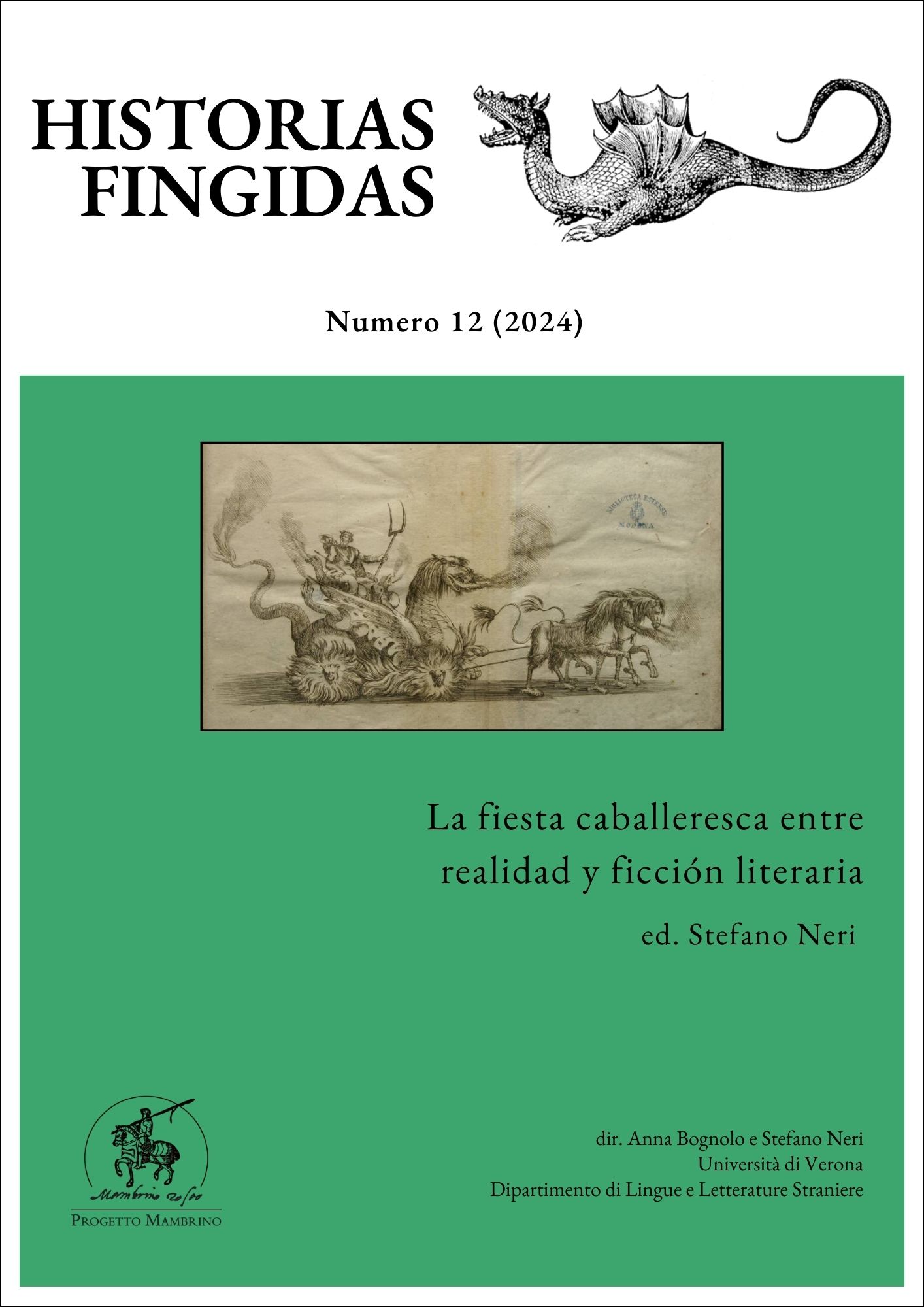From Spectacularity to Oblivion: The Liturgical Celebration in Florisando (1510) and Don Florisandro (1550)
DOI:
https://doi.org/10.13136/2284-2667/1534Keywords:
Chivalry books, religion, liturgy, processions, translationAbstract
In this research, framed within the development of a doctoral thesis on the representation of thought and religious politics in chivalric books published between the reigns of the Catholic Monarchs and Charles V, the liturgical celebrations that culminate in the performance of processions invoking the divinity, represented in "Florisando" (1510), are studied. Subsequently, a comparative analysis is conducted between the passages of the Castilian work and its Italian translation, "Don Florisandro" of 1550. The study demonstrates the author's profound knowledge of liturgy and how these celebrations were common at the time of the work's writing. Similarly, the comparison between the two works, Castilian and Italian, provides interesting data on Mambrino Roseo's approach in his translations of the Amadisian cycle.
Downloads
Published
Issue
Section
License
Copyright (c) 2024 Juan José Sánchez Martínez

This work is licensed under a Creative Commons Attribution-NonCommercial 4.0 International License.
Authors must attend to the following conditions:- Authors will mantain the copyright of their work and leave to the journal first publishing rights, simultaneously licensed by a Creative Common License - Attribution - No Commercial Use that permits other researchers to share the work indicating the intellectual property of the author and the first publishing in this journal not for commercial use.
- Authors can adhere to other license agreements not exclusive to the distribution of the published version of their work (for example: include it in an institutional archive or publish it in a monografic book), with the agreement of indicating that the first publishing belongs to this journal.
- Authors can disseminate their work (for example in institutional repositories or their personal website) before and during the submission procedure, as it can lead to advantageous exchanges and citations of the work (see also, The Effect of Open Access).

